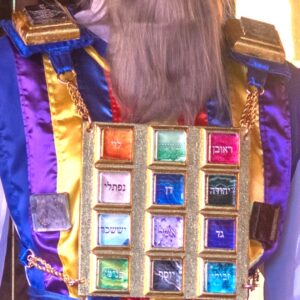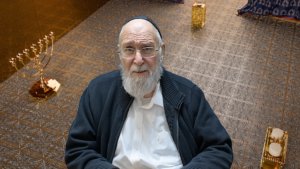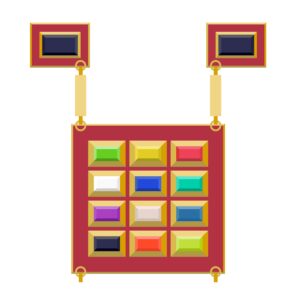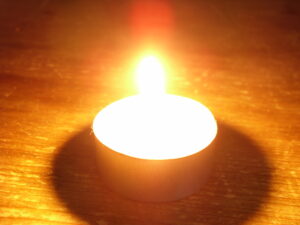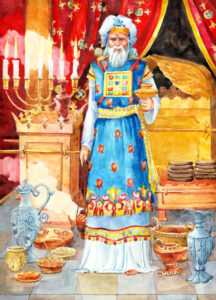Believe In Yourself
FROM THE UPCOMING ‘REBBE NACHMAN’S SOUL’, ADAPTED FROM HIS AUDIO SHIUR ON SICHOS HARAN 140
FAITH IS SIMPLE
Parshas Lech Lecha opens with HaShem’s call to Avraham Avinu: “Go for yourself, from your land, from your birthplace, and from your father’s house, to the land that I will show you.” When HaShem told Avraham “Lech Lecha”—to go forth—it wasn’t only a call to travel, but to believe in himself. Rabbeinu zal teaches in Sichos Haran #140 that true faith includes faith in one’s own divine potential. Like Avraham Avinu, we must trust that HaShem believes in us. In this sichah, Rabbeinu zal refers to Likutey Moharan Tinyana, Torah Peh-Vav, which discusses emunah.
Emunah is a favorite topic because it is the most important item that exists; it is the basis for everything. If a person has faith, he is alive, and he will always live. A person without faith is a walking corpse. He cannot be expected to enjoy life. Without faith, life is meaningless.
Faith means very simple, pure emunah in HaShem. With this simple faith, it is easy to serve HaShem. Some people have the impression that in order to serve HaShem they must deprive themselves. You are not supposed to eat, you are supposed to fast; and you are supposed to take on different types of suffering. At one time, people even afflicted themselves by rolling in the snow, bathing in ice, and so on and so forth. All these were types of avodas HaShem, but they were only necessary because there was something lacking in the person’s faith. The Jew who has pure simple faith — without being a genius, without being a sage, without being an extremist — can serve HaShem without going to any extremes whatsoever. We learn from this that there are no extremes, even in Heaven.
Sometimes a person does not serve HaShem properly, and so he is sent different types of yissurim, suffering. He may suffer from a lack of money, his business goes bad; he becomes ill, or he has problems raising his children, chas veshalom. Sometimes it is even necessary to test a person with his life; he is expected to give up his life for the sake of his religion, to prove himself. All this is because the person’s faith is lacking; it is imperfect.
True faith means faith in its most simple form, without studying deeply, without any trace of philosophizing. It is simply, “I believe in HaShem, and I believe implicitly that HaShem’s word is the truth. Anything contrary to the word of HaShem is false.” This is simple faith. The simplest person in the world could have it. This is why Rabbeinu zal said if you want to know what true faith is, do not go to the great scholars. Go to the simple people. Go to the women, whose hearts are purer than men in this respect. Their faith is unquestioning. They do not ask why. Learn from them the true meaning of faith (Sichos HaRan 33). This implicit faith is also called blind faith. People might sneer at you, saying, “Prove it, what do you know about it.” The answer is blind faith: “I believe without question. Although I do not understand, although I do not see it, I believe in HaShem. I believe in HaShem’s greatness. HaShem created the world and HaShem conducts the world. That’s it. Call me a fool. I am willing to be called a fool and to retain my faith solidly.” This kind of faith obviates the necessity for any kind of suffering or tests. A person with such faith will not have to give up his life for the sake of his religion, because he has proven himself with this simple, pure faith. These are the words of Rabbeinu zal in Likutey Moharan.
BELIEVE IN YOURSELF
In this sichah, Reb Noson writes that when he heard these words from Rabbeinu zal he was shocked in a sense, because he felt every word Rabbeinu zal said was directed at him — as everyone should feel. The Mishnah says in Pirkei Avos (Avos 1:6), “Asei lekha rav“, which means, acquire for yourself a rebbe. The best student is one who hears a lesson, a shiur, and feels that the words are directed at himself; the message was meant specifically for him. The shoe fits. He finds himself in those words and tries to correct any shortcoming. Rabbeinu zal was speaking about faith, so Reb Noson said, “Am I that short in emunah? Do I really lack faith in HaShem?” Rabbeinu zal replied, “You do not lack faith in HaShem. You have faith in HaShem. You have emunah in the Torah, in the tzaddik emes, in your Rebbe — but you lack faith in yourself. You do not have enough self-confidence. You think too little of yourself.” Rabbeinu zal said that you are supposed to have faith in HaShem and tie yourself in it. Have faith that HaShem is so great that even you — whom you consider so low, so infinitely small before HaShem — are also important in the eyes of HaShem. Your neshamah, your soul too, is a part of the Shekhinah; and therefore, you are precious in the eyes of HaShem. Have confidence in yourself and feel better, feel happier about yourself. Feel a sense of accomplishment — I’m a part of the Shekhinah, and HaShem regards me as a part of Himself. That should bring you simchah. Without it, you can be brought down to, chas veshalom, a depressed state of mind. This is the supplement to true faith, and it is crucial for service of HaShem.
EMUNAH INCLUDES FAITH IN THE TZADDIK EMES
Reb Noson says in Likutey Halakhos that faith in HaShem is one thing, but it is not complete until a person has faith in the tzaddik emes (Likutey Halakhos, Rosh Chodesh 6:34). A person who has faith in HaShem and not in the tzaddik, his faith is worthless. There must be both. In the story of Kerias Yam Suf, we have the pasuk “Vaya’aminu beHaShem uveMoshe avdo (Shemos 14:31), the Jews believed in HaShem and Moshe Rabbeinu. One emunah for both, one faith covers both. If you have only half, it is nothing.
Reb Noson writes that we find this in the case of Adam HaRishon. When Adam was created, he was also bound by the rules of faith. He had to have faith in HaShem. But was he exempt from having faith in the tzaddik? No Jew can be exempt from that. What was Adam HaRishon’s rule as far as faith in the tzaddik? This is what Rabbeinu zal meant; there is a time when you must have faith in yourself. Adam HaRishon was forced, bound to have emunah in himself, because he was the tzaddik emes. With all the humbleness, he had to believe that he was the tzaddik emes, and he had to have emunah in himself (Likutey Halakhos, Rosh Chodesh 6:35).
This means that there is one person in the world, the tzaddik emes, who has a very delicate task of faith. He must have emunah in the tzaddik emes and not be misled; he must not say, out of humility, that there is a different person who is the tzaddik emes, because then it is a false faith. He must have emunah in himself as the tzaddik emes.
Rabbeinu zal says that the greatest degree of anivus is when the most modest, humble person in the world is capable of recognizing himself as such. Moshe Rabbeinu, who was the most humble person in existence, was able to write the words in the Torah, “Veha’ish Moshe anav me’od” (Bemidbar 12:3). He wrote about himself that Moshe Rabbeinu is the most humble person in the entire world, without feeling any conceit. He was able to say that statement about himself, because he had to have the same degree of emunah in the tzaddik emes and himself. Without that, there would have been a trace of emunah lacking, chas veshalom, and that was impossible. He was able to write that, and have the emunah in himself, and still remain the most humble person in the world.
- 0 comment


